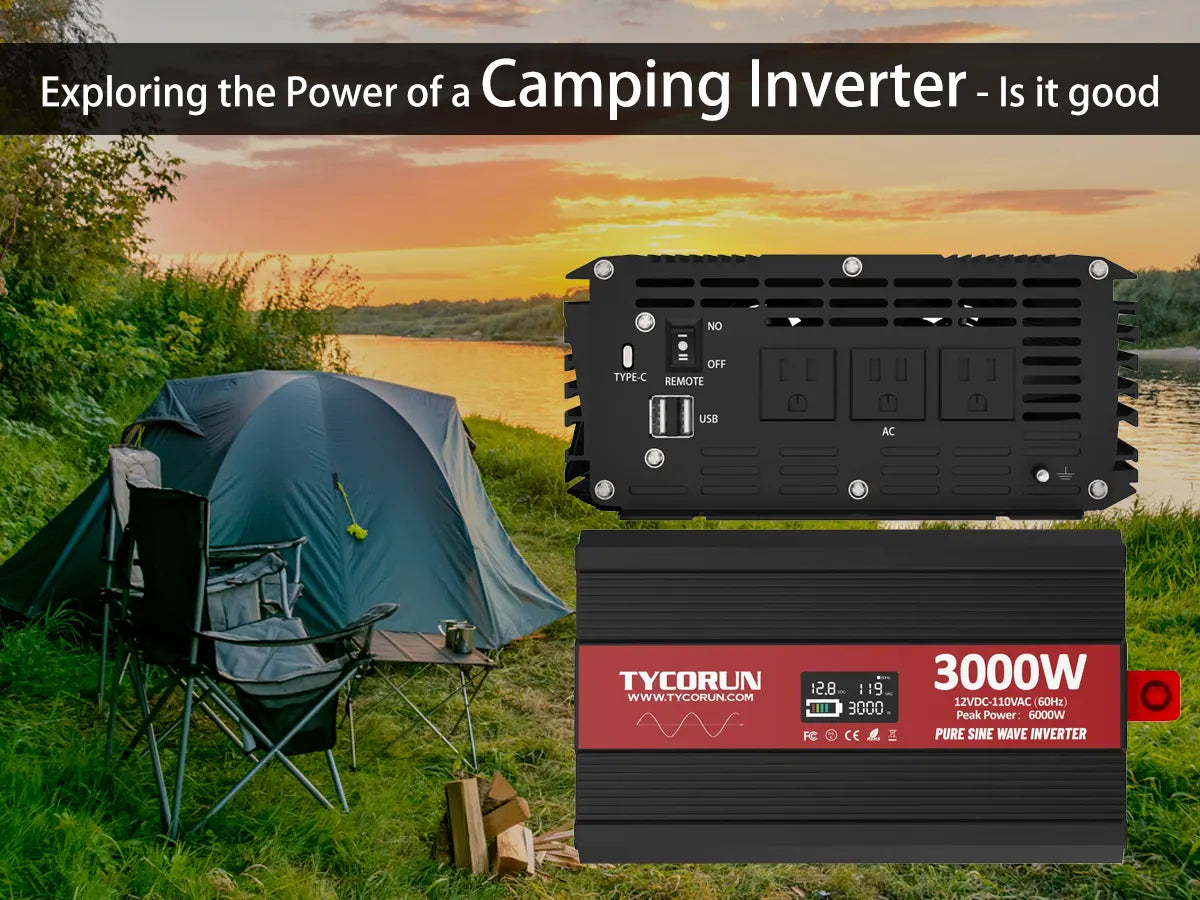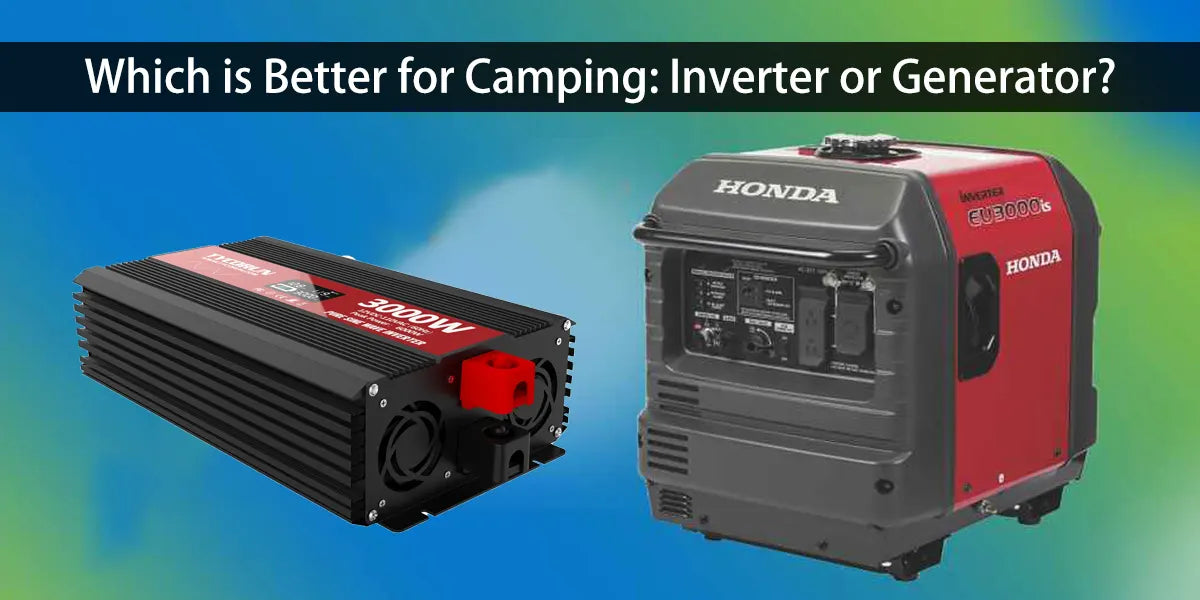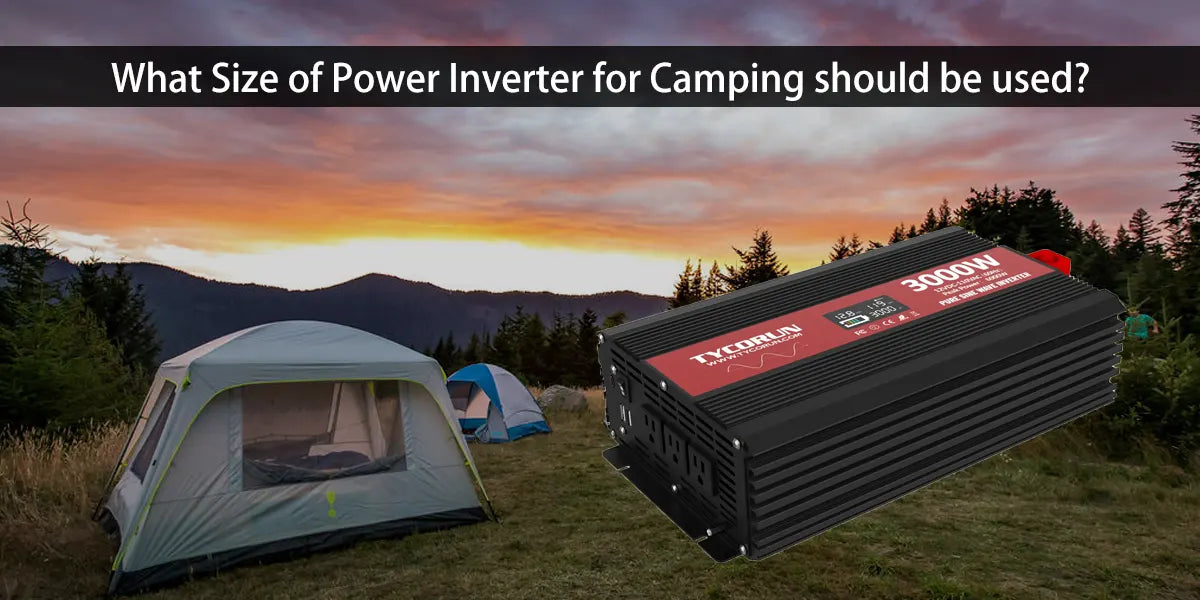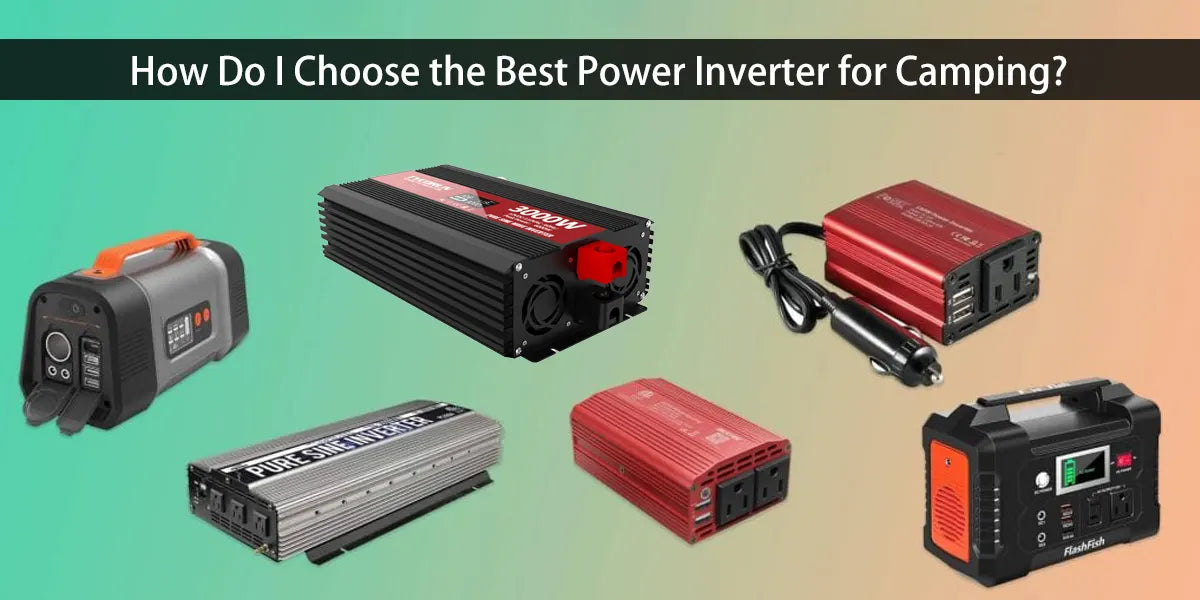
In the world of outdoor adventures, where the serene embrace of nature meets the comforts of modern technology, a camping inverter emerges as indispensable tools.
In this comprehensive guide, we embark on a journey to unravel the intricacies of a camping inverter—addressing questions about their necessity, efficiency, and the nuanced process of selecting the best camping inverter for your camping escapades.
Main content:
- What is a camping inverter?
- Are inverters good for camping?
- Which is better for camping: inverter or generator?
- What appliances can run on my camping inverter?
- What size of power inverter for camping should be used?
- How do I choose the best power inverter for camping?
- What is the best inverter for a camper?
- FAQs
What is a camping inverter?
A camping inverter stands as a portable power solution meticulously crafted to convert direct current (DC) electricity—commonly sourced from batteries or solar panels—into the alternating current (AC) electricity that powers our everyday devices.
Compact, versatile, and designed for the rigors of outdoor use, a camping inverter bridges the gap between the tranquility of nature. A camping inverter provides the convenience of electrical power in a camping trip, bringing a touch of modernity to the camping experience.
Are inverters good for camping?
Without a doubt, a camping inverter proves its useful in the great outdoors. Whether you're charging your smartphone, running a mini-fridge, or relying on essential medical devices, a camping inverter provides the necessary electrical power without tethering you to traditional grid connections.
But why do you need one? The answer lies in the convenience and self-sufficiency they offer. Moreover, for eco-conscious campers, a camping inverter designed for solar panels has become indispensable. These innovative inverters harness the power of the sun, converting it into usable energy, making your camping experience both environmentally friendly and self-reliant.

Which is better for camping: inverter or generator?
The perennial debate between a camping inverter and generators hinges on various factors like noise, portability, and environmental impact. While generators boast robust power output, they often counterbalance this advantage with noise and emissions. A camping Inverter, on the other hand, emerges as quieter, more portable alternatives that align with environmentally conscious camping practices.
The choice between the two depends on your camping style and the degree of power autonomy you seek. If tranquillity, convenience, and sustainability are your priorities, a camping inverter is definitely the best choice.
What appliances can run on my camping inverter?
The versatility of a camping inverter is reflected in its ability to power an array of appliances, enhancing the comfort and convenience of your outdoor experience. From essential communication devices like smartphones and laptops to portable refrigerators, lights, fans, and even small kitchen appliances, a well-sized camping inverter becomes a versatile power source.
This adaptability ensures that your camping trip is equipped with the necessary electronic essentials, striking the perfect balance between enjoying the great outdoors and maintaining some modern comforts.

What size of power inverter for camping should be used?
Selecting the right size of power for your camping inverter is a pivotal aspect of ensuring an efficient camping experience. Begin by assessing your power needs: total the wattage of all devices you plan to use simultaneously. Choose a camping inverter with a continuous power rating slightly higher than this total wattage to guarantee it can handle the load without the risk of overload. If you camping only need to charge your mobile phone, and lights, electric fans and other small equipment to provide electricity, then 500 w power inverter - 1000 watt inverter is enough.
If you want to use Glamping car to provide power to refrigerators, microwave ovens and other high-power equipment, then you can choose power inverter 3000w. Additionally, consider the surge or peak power requirements of certain devices during startup. A well-sized Power Inverter for Camping ensures a seamless power supply, allowing you to enjoy your camping trip without worrying about power limitations.
How do I choose the best power inverter for camping?
Choosing the right camping inverter involves a thoughtful consideration of several factors, including power requirements, portability, and additional features. Start by calculating your total wattage needs, selecting an inverter with a slightly higher continuous power rating. Portability is key for camping, so opt for a compact and lightweight model that won't weigh you down on your outdoor adventures.
Consider additional features such as USB ports, LCD displays, and advanced safety mechanisms. These can enhance the overall usability and efficiency of the inverter, making it the best Power inverter for your camping and a valuable addition to your camping gear. You can see the inverter buying guide, and best solar inverter brands article for more details.

What is the best inverter for a camper?
Determining the best inverter for a camper is a subjective task that hinges on individual preferences and specific camping requirements. When it comes to the zenith of a camping inverter, the pure sine wave inverter stands tall. Renowned for its exceptional performance, the TYCORUN inverter combines cutting-edge pure sine wave technology with a robust design.
With a true 3000W continuous power output and 6000W peak power, it effortlessly caters to the power demands of various camping appliances. Its advanced features, including ground-fault circuit interrupter (GFCI) protection, ultra-silent cooling system, and user-friendly wireless remote control, make it the epitome of a reliable camping power companion.
Conclusion
A Camping inverter has emerged as a transformative tool, seamlessly blending the serenity of nature with the modern conveniences of electricity. With the best inverter for camping, your camping trip can be illuminated with the comforts of technology while still basking in the beauty of the great outdoors.
Whether you're a seasoned camper or embarking on your first outdoor adventure, a well-chosen camping inverter becomes a reliable companion, ensuring you have the power you need, wherever your journey takes you.
|
|
500w
|
1000w |
2000w
|
3000w
|
|
Product image
|
||||
|
Price & Discount
|
$49.9(-29%)
|
$98.99(-29%)
|
$199.90(-20%)
|
$229.00(-23%)
|
|
Rated Input Voltage
|
12VDC
|
12VDC
|
12VDC
|
12VDC |
|
Continuous Power
|
500w
|
1000w
|
2000w
|
3000w |
|
Peak Power
|
1000w |
2000w |
4000w |
6000w |
|
More information |
Click to get the details |
Click to get the details |
Click to get the details |
Click to get the details |
FAQs
Can a camping inverter last for 24 hours?
The continuous operation of a camping inverter for 24 hours is contingent on factors such as the inverter's capacity, the connected load, and the available power source (battery or solar panels). It's advisable to carefully size the inverter and monitor the power consumption of connected devices to ensure sustained operation throughout your camping adventure.
Does an inverter need a battery?
Yes, an inverter necessitates a battery to function. The battery serves as the primary source of direct current (DC) power that the inverter converts into alternating current (AC) power. The size and type of the battery are essential considerations to ensure compatibility with the inverter's power requirements.
Is 100Ah lithium enough for a camping inverter?
The adequacy of a 100Ah lithium battery for a best inverter for camping depends on your power needs. Lithium batteries, known for their high energy density and efficiency, are suitable for various camping applications. Assess your total power consumption, and if it falls within the capacity of a 100Ah lithium battery, it can serve as a suitable and lightweight power source for your camping adventures.
Related posts: 12v 100ah deep cycle battery, 12v 6ah deep cycle battery, battery stores near me



